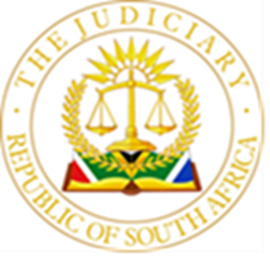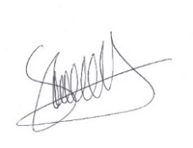- Flynote
-
Maintenance Act 99 of 1998 – application for discharge or substitution of maintenance order on good cause shown in terms of section 6 (1) (b) – “good cause” not established where a Maintenance Court fails to consider the provisions of a settlement agreement setting the terms for any future variation of the maintenance obligation.

IN THE HIGH COURT OF SOUTH AFRICA
(GAUTENG DIVISION, JOHANNESBURG)

(1) REPORTABLE: Yes
(2) OF INTEREST TO OTHER JUDGES: Yes
(3) REVISED.
SIGNATURE DATE: 13 July 2023
Case No. A3079/2021
In the matter between:
LDB Appellant
and
JSB Respondent
Summary
Maintenance Act 99 of 1998 – application for discharge or substitution of maintenance order on good cause shown in terms of section 6 (1) (b) – “good cause” not established where a Maintenance Court fails to consider the provisions of a settlement agreement setting the terms for any future variation of the maintenance obligation.
JUDGMENT
WILSON J:
1 On 31 January 2014, the respondent, JSB, divorced the appellant, LDB. The terms of the divorce were set out in a settlement agreement which the Randburg Regional Court endorsed.
2 Clause 3 of the settlement agreement records that JSB will pay R30 000 per month in maintenance from the day on which LDB vacates the marital home (clauses 3.1 and 3.2); that this obligation will terminate if LDB dies, remarries, or cohabits with anyone other than their mother (clause 3.3); and that JSB will reimburse LDB’s vehicle maintenance and repair expenses not covered by LDB’s insurer, on presentation of proof of such expenditure (clause 3.4).
3 Clause 3 also records that JSB and LDB agreed that the maintenance provided for was “fair and necessary” (clause 3.5). The maintenance payments provided for would track JSB’s professional fee income, and notice of any change in that income would be provided to LDB annually (clause 3.6). Finally, in the event JSB’s professional fee income being affected by “regulatory factors”, “political interference”, “illness” or any other development over which JSB has no control, JSB would be entitled to apply for a “review” of the agreement (clause 3.7).
4 JSB honoured clause 3 until early 2020. In April 2020, JSB ceased all payments under it. JSB then applied, in June 2020, to the Randburg Magistrates’ Court under section 6 of the Maintenance Act 99 of 1998 for a complete discharge of their obligations under the agreement. Apparently contrary to the detailed provisions of the Act, the matter was dealt with as if it were an ordinary civil claim. After hearing seven days of evidence spread out over the six months between 20 October 2020 and 29 April 2021, the Magistrate, on 17 June 2021, granted an order in which she permanently relieved JSB of all their cash maintenance obligations under clause 3 of the agreement.
5 On 23 June 2021, LDB asked that the Magistrate give written reasons for her decision. Those reasons were not produced until 1 April 2022. They consisted of 13 terse sentences which amounted to the propositions that, in the Magistrate’s view, JSB’s earning capacity had decreased “tremendously” as a result of the Covid-19 pandemic and JSB’s “own personal health”; that JSB was reliant on their savings to meet their expenses; that LDB did not need the maintenance provided for in the agreement; and that the parties’ relative financial positions were more or less identical.
6 LDB now appeals to us against the Magistrate’s order. An examination of the record reveals that none of the Magistrate’s factual findings has any reliable foundation in it. But the biggest difficulty with the Magistrate’s reasons (aside from their unexplained and, on the face of it, inexcusable lateness) is that they do not engage at all with the provisions of the settlement agreement that ended the parties’ marriage. The Magistrate, quite wrongly, approached the matter on the basis that the parties’ relative means could be considered afresh in a vacuum, and that there was no burden on JSB to justify the nature and extent of any departure from the agreement. In view of the provisions of the settlement agreement I set out above, which explicitly record the parties’ consensus that the maintenance obligations JSB assumed were “fair and necessary” and that they could only be departed from in defined circumstances, the Magistrate’s decision cannot stand.
7 On a proper analysis of the evidence before the Magistrate, there was no justification for the discharge of JSB’s maintenance obligations. The most that could have been justified was a suspension of the cash payments due under clause 3.1 to reflect what appears to have been a temporary collapse of JSB’s fee income during the very early months of the pandemic. Interpreting the evidence before the Magistrate in the manner that is most generous to JSB, that temporary suspension could only have been justified between the months of April and September 2020.
8 It follows that the appeal must be upheld, and that the Magistrate’s order must be substituted for one dismissing the application for a discharge of JSB’s obligations, but suspending the operation of clause 3.1 of the settlement agreement between the months of April and September 2020. This conclusion follows from the analysis of the applicable law and the relevant evidence I elaborate below.
The approach adopted in the court below
9 Anyone who has ever had to participate in proceedings determining spousal maintenance appreciates that the exercise is fraught with difficulty. The principal source of that difficulty is that, by the time the matter has reached a Judge or a Magistrate for decision, the facts are hotly contested, and neither party can really be relied upon to give a frank and straightforward account of their means and needs. In this court, that difficulty is addressed by the requirement that the parties make the financial disclosures enumerated in E v E 2019 (5) SA 566 (GJ).
10 The enquiry in the Maintenance Court is regulated much more closely. The Maintenance Act sets out a detailed set of procedures designed to seek out relevant information and make orders giving effect to legal duties of support across a wide variety of situations. The process is triggered under section 6 of the Act, which provides for the institution of complaints where (a) the complainant alleges and seeks to enforce a legal duty of support, (b) the complainant seeks the substitution or discharge of an existing maintenance order or (c) where the complainant seeks the substitution or discharge of an obligation embodied in a maintenance agreement.
11 JSB made their application under section 6 (1) (b) of the Act, which provides for the substitution or discharge of an existing maintenance order on good cause shown. Once such a complaint is lodged, a maintenance officer must investigate it in the manner prescribed in sections 7, 8 and 9 of the Act. These sections set out a wide range of fact-finding powers, including the power to do what is necessary to trace any person against whom a complaint is made, or to call for information concerning “the financial position of any person affected” by the legal duty to pay maintenance (section 7 (2) (e) (ii)). In doing so, a maintenance officer may be assisted by a maintenance investigator, who performs a separate statutory role, endowed with its own powers and duties. It is only once such an investigation is complete that the maintenance officer may institute a maintenance enquiry before a Magistrate (section 6 (2)).
12 The purpose of this manner of proceeding should be obvious. It is to ensure that the parameters of any dispute about a duty to maintain are established, that a body of basic, hopefully uncontested, information about the parties’ financial positions is compiled, and, where disputes about the parties’ relative means and needs have emerged, the contours of that dispute and the information necessary to resolve it have, as far as possible, been established.
13 All of this prevents the Magistrate that will ultimately be seized with the enquiry from deciding the issues in a vacuum, or from having to run what would otherwise turn out to be a lengthy civil trial in order to determine whether to make a maintenance order under section 16 of the Act, and what order should be made. The object is cheap and efficient identification of a just and fair set of maintenance arrangements between those subject to the Act, using as little court time as possible.
14 That is not what happened in this case. As far as I can see, there was no maintenance investigation, no attempt to identify and narrow the real issues between the parties and no attempt to compile a reliable set of financial information against which JSB’s complaint could be considered. The maintenance officer referred JSB’s complaint to the Magistrate for an enquiry under section 10 apparently without attempting to define the terms of the dispute and without discharging any of their statutory functions.
15 The outcome was predictable. The parties and the Magistrate treated the proceedings in the court below as an ordinary civil trial. JSB gave wide-ranging evidence of what they said was their inability to discharge their obligations. They were extensively cross-examined. It was then LDB’s turn to give evidence of their need for maintenance, and their own means of support. The enquiry lasted seven court days (not including the days on which no evidence was led). Notwithstanding the Act’s injunction that a maintenance court ensures that “postponements are limited in number and in duration”, the evidence was eked out, one day at a time, over months. The whole process, from the institution of the complaint, to the point at which the Magistrate gave her reasons, lasted just short of two years. I have little doubt that if those responsible for framing the Act were asked to set out the sort of situation the Act was designed to avoid, they would have described a scenario with many, if not all, of the features of this case.
The evidence
16 No doubt because nothing was done to investigate the case, and to shape the terms of the maintenance enquiry, the court below lost sight of the fact that the parties had already decided in the settlement agreement what the maintenance regime should be, and had identified for themselves the circumstances under which that obligation could be varied.
17 There were two such situations. The first was a change in JSB’s professional fee income. Clause 3.6 makes abundantly clear that the maintenance due to LDB would vary with JSB’s professional fee income. Clause 3.6 is unfortunately vaguely worded, but its unmistakable purpose is that the maintenance due to LDB would vary in proportion to the rise or fall of JSB’s professional fee income, taking JSB’s income as at 31 January 2014, and the amount of R30 000 per month in maintenance, as the starting points. The second situation was any other change in JSB’s fee-earning capacity that was beyond their control, including, but not limited to illness, political manipulation of JSB’s profession or what is somewhat cryptically referred to as “regulatory factors”.
18 In order to vary the maintenance payable to LDB by substituting the settlement agreement for a new maintenance regime, the Magistrate had to be satisfied that there was “good cause” to do so in terms of section 6 (1) (b) of the Act. While the terms of the settlement agreement were obviously not binding on the Magistrate, any evaluation of whether there was “good cause” in this sense ought to have started with the terms of the agreement, because that is where the parties had decided for themselves what good cause entailed. If there was good cause to depart from the agreement’s terms, by completely extinguishing the cash maintenance obligation provided for in clause 3.1, that ought to have been identified and recorded in the Magistrate’s reasons.
19 The Magistrate unfortunately said nothing at all about the settlement agreement in her reasons. However, it can be inferred from what she did say that she found what she described as a “tremendous” decrease in JSB’s earning capacity caused by illness and the Covid-19 pandemic. The finding that JSB’s earnings had suffered because of illness is not supported by the evidence. JSB was diagnosed with a dread illness, but the evidence was that they had recovered from it by late 2019, in time for an increase in the maintenance payable to LDB to be implemented in January 2020. There is little gainsaying that JSB suffered a very severe dip in their income during the early part of the Covid-19 lockdown. But the evidence is that JSB was able to resume their work from mid-August 2022 and that their practice had recovered by October 2020 at the latest.
20 Moreover, much of the evidence of JSB’s income presented to the Magistrate was unreliable. In the first place, it relied on self-produced fee books and audit trails, with little attempt at independent verification. Under cross-examination, counsel for LDB identified critical shortcomings and contradictions in the information provided, such that very little of it can safely be relied upon.
21 In any event, the evidence JSB relied upon was marred by a failure to identify what JSB’s income was at the time the settlement agreement was concluded, and to track the extent to which it had been adjusted since then. Unless there was good cause to depart completely from the terms of the agreement that governed those adjustments (I can find none), then any argument JSB made about their changed earning capacity would have to have commenced with an account of that capacity when the settlement agreement was concluded. That is nowhere in evidence.
22 It follows that, other than the obvious and precipitous drop in income in the middle six months of 2020, which is to some extent explained and corroborated by objective facts related to the impact of the Covid-19 pandemic, JSB’s evidence fell woefully short of establishing that there was any change in their income that could not be dealt with by simply applying the terms of the settlement agreement.
23 The other reasons the Magistrate gave for her order were, it seems to me, wholly irrelevant to the issues she had to decide. It matters not that LDB owns their own home. That home was itself purchased pursuant to the terms of the settlement agreement, and so was part of the bargain in which the cash maintenance payments were thought to be “fair and necessary”. Nor does it matter that LDB has built up significant savings since the agreement was entered into. The Magistrate did not identify the facts on which she concluded that the maintenance payable under the agreement was more than LDB needs. In the absence of such facts, the conclusion cannot be justified –especially, it bears repeating, in the face of the parties’ consensus, recorded in the settlement agreement that the maintenance payments are “fair and necessary”.
24 Accordingly, but for an order adjusting the maintenance payable during the middle six months of 2020 (which would itself have been little more than an application of the agreement’s own terms, the Covid-19 pandemic very clearly being a situation beyond JSB’s control), JSB’s complaint should have been dismissed. While section 16 of the Act does not explicitly allow for the dismissal of a maintenance complaint, in the context of this case, that would have been the effect of the exercise of the power to “make no order” in section 16 (1) (c) of the Act.
Order
25 The appeal must be allowed. In a cross-appeal, JSB asks that the Magistrate’s discharge of their cash maintenance obligation be back-dated to 1 June 2020. In light of the conclusions I have reached, the cross-appeal must obviously be dismissed.
26 The Maintenance Act does not provide for a Maintenance Court to award costs, save in defined circumstances, which are not applicable here. The implication is that each party generally pays their own costs in maintenance proceedings dealt with under the Act. There is, however, no reason why costs should not follow the result in the appeal. LDB, having been substantially successful, is entitled to those costs.
27 For all these reasons, I would make the following order –
27.1 The appeal is allowed, with costs.
27.2 The cross-appeal is dismissed, with costs.
27.3 The order of the court below is set aside and replaced with the following order –
1. The complainant’s obligations under clause 3.1 of the settlement agreement entered into between the parties and made an order of court on 31 January 2014 are suspended during the period between 1 April 2020 and 30 September 2020.
2. No order is otherwise made on the complainant’s complaint.
3. Each party will pay their own costs.

S D J WILSON
Judge of the High Court
28 I agree, and it is so ordered.

S KUNY
Judge of the High Court
This judgment was prepared by Judges Wilson and Kuny. It is handed down electronically by circulation to the parties or their legal representatives by email, by uploading it to the electronic file of this matter on Caselines, and by publication of the judgment to the South African Legal Information Institute. The date for hand-down is deemed to be 13 July 2023.
HEARD ON: 6 June 2023
DECIDED ON: 13 July 2023
For the Appellant: H Gray
Instructed by Philippa Kruger Attorneys
For the Respondent: G Olwagen-Meyer
Instructed by Alan Jose Inc
